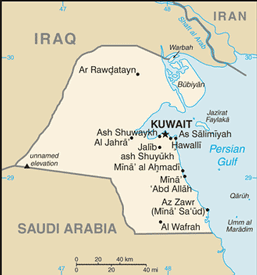The latest elections for Kuwait’s National Assembly have ended with a massive change in focus for the nation’s sole legislative body as the opposition Islamist bloc won an overwhelming number of seats (34 of 50), giving it an unblockable majority.
 The “unblockable” part is key in Kuwait’s unique governmental system where the monarch-appointed Prime Minister can add 15 MPs of his own to parliament through cabinet appointments, meaning his faction has a built-in 15-seat lead before any elections take place. Even if none of his cabinet members are existing MPs, the Islamists will hold a 34-31 lead.
The “unblockable” part is key in Kuwait’s unique governmental system where the monarch-appointed Prime Minister can add 15 MPs of his own to parliament through cabinet appointments, meaning his faction has a built-in 15-seat lead before any elections take place. Even if none of his cabinet members are existing MPs, the Islamists will hold a 34-31 lead.
Exactly what an opposition-led parliament will mean for Kuwait is unclear. The Kuwaiti parliament is theoretically more powerful than those of other regional monarchies, but it will remain in opposition to the sitting cabinet.
Kuwait’s Islamist bloc is led by a combination of Salafists and the somewhat more moderate Muslim Brotherhood factions, and has traditionally focused on anti-corruption measures as well as efforts to implement Sharia law. Previous attempts at tackling corruption led to the Emir dissolving the parliament in 2008, claiming the legislators were “misusing their powers.”


